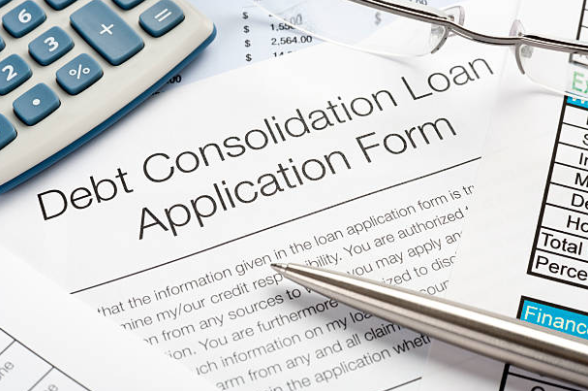What is debt consolidation and how does it work?

Eliminating a varied list of debts is just one of the benefits of debt consolidation.
Having maxed out debts on several credit or departmental cards and accumulated debts from other services such as cell phones, medical or any other type of debt can easily distract you from being able to meet your minimum payments individually.
What is Debt Consolidation?
Debt consolidation consists of obtaining a loan to pay off other loans and/or credit, such as credit cards. With debt consolidation you can pay several debts in one monthly payment and it is just one of the solutions to reduce your debts.
Let’s suppose that your payment capacity allows you to make the minimum payments, but that will not be enough to get out of the problem, since most of the money you pay will be used to pay interest.
The main objective is to get a loan with lower interest and lower monthly payments without risking your assets. Debt consolidation loans are useful for people with high interest on their debts and who find it difficult to pay their bills each month. You can eliminate debt with a free consultation from debt settlement specialists.
Key advantages of debt consolidation:
You only owe one debt
Let’s say you owe four different things: a car loan, outstanding balance on two credit cards, and a department store card. You need to be on top of each of those debts and pay 4 bills each month.
With consolidation you will be free of outstanding payments with the help of a credit, in which your 4 debts will be united into one. This way you will need to pay only one bill each month making it easier to plan and budget your expenses.
Check out: Positive and Negative Debt
Reducing the average interest rate on the total amount
As an example – with four different debts, the highest interest rate can be up to 18% and the lowest interest rate can be 3.5%. After consolidation, the grouped debt can have only one interest rate, so your average interest rate is significantly reduced and with it your overall debt and what you have to pay each month.
Debt consolidation loans can reduce the total amount of money you pay monthly. Meaning that after consolidation you pay less money in the single monthly payment than you do now when you add up all your monthly payments.
If you apply for a payroll loan, it will be very difficult for you to fall into arrears, since the monthly payments will be deducted from your paycheck on a biweekly or monthly basis, and the money that is deposited can be used for your current expenses without worrying about other debt.
Before applying for a loan to reunify all your debts you must carry out the following steps:
- Calculate the sum of all the money you owe.
- Think about how much money you want to borrow for consolidation.
- Find out the terms of the loan, since some of them charge you if you pay off the loan in advance and make sure it is a fixed rate.
Calculate the difference between your income and your monthly expenses and set aside an amount for emergencies. The amount resulting from subtracting the expenses from the income is what you can pay as a monthly payment for the consolidation.


Hi, I am Nikesh Mehta, owner and writer of this site. I’m an analytics professional and also love writing on finance and related industry. I’ve done online course in Financial Markets and Investment Strategy from Indian School of Business. I can be reached at nikeshmehta@allonmoney.com.



